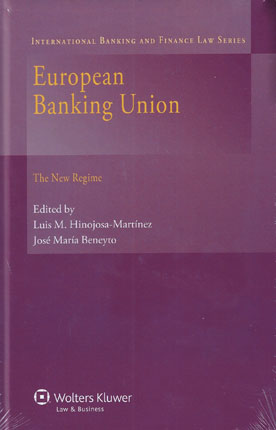
‘L’Europe se fera par la monnaie ou ne se fera pas’ [Europe will be made by currency or it will not be made], warned economist Jacques Rueff as long ago as 1949 – a prophetic remark that has become highly salient since the financial meltdown of 2008 severely threatened the European integration project.
The depredations of the crisis quickly led to the development of the European Banking Union, with the goal of recapitalizing or otherwise resolving troubled banks in ways that minimize taxpayer cost and systemic risk. The bulk of the new institution, which contemplates a single supervisory system and a single recovery and resolution mechanism for troubled banks, is now established under European legislation.From a perspective both constructive and critical, this book provides a legal, economic, and political analysis of the European legislation enacted so far to implement the Banking Union.
The new and ongoing effects of all relevant EU legislation and international soft law are brought into consideration throughout. This ambitious and important book responds to crucial questions regarding what the Banking Union has achieved so far, what risks and challenges lie ahead, and which problems cannot be solved by the Banking Union in its current form. For these reasons it is sure to assist policymakers, practitioners, and academics to proceed confidently in matters involving finance in the Eurozone under the new regime.